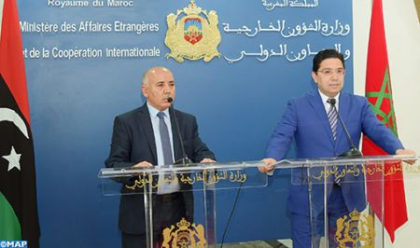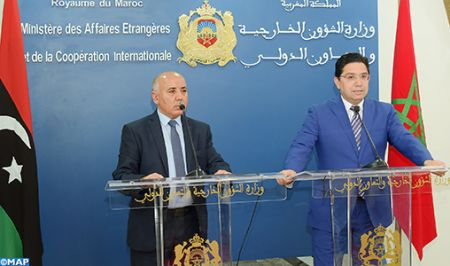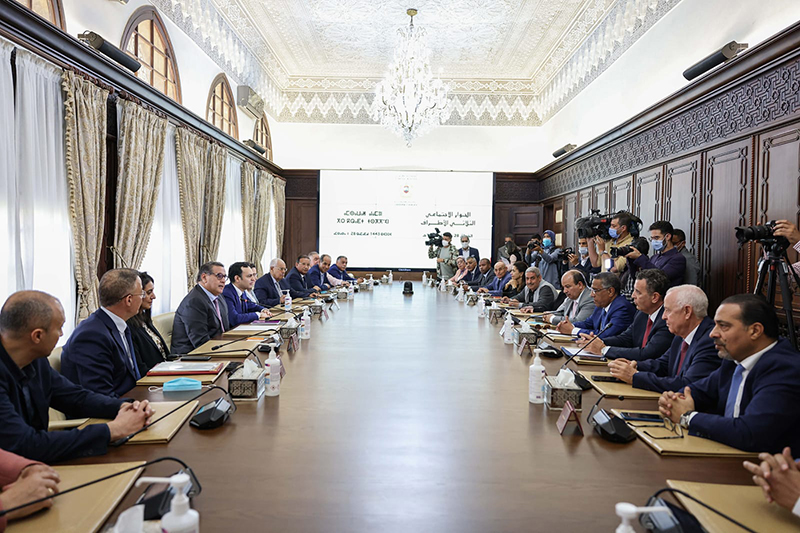 Morocco calls all Libyan parties to end hostilities and to engage in political dialogue
Morocco calls all Libyan parties to end hostilities and to engage in political dialogue
The UN-brokered agreement inked by Libya’s warring factions in the Moroccan coastal town of Skhirat remains the framework and the basis of any political settlement in Libya, said on Wednesday Jomaa al-Qamati, personal envoy of the Head of Govt of National Accord, recognized by the international community.
In a statement to the press after meeting in Rabat Foreign Minister Nasser Bourita, the Libyan envoy thanked Morocco for hosting the historic inter-Libyan dialogue in Skhirat, which was a crucial phase in promoting national reconciliation and political consensus.
Mr. Al Qamati stressed the need to end the cycle of violence and resume the peace process on the basis of the Skhirat agreement which sets the foundations of a civil, constitutional and democratic state, based on the rule of law.
“The solution in Libya is political and not military”, he stressed, calling the international community to act to end the cycle of violence in his country.
For his part, Morocco’s top diplomat Nasser Bourita called on all Libyan parties to cease hostilities and engage in political dialogue to overcome all obstacles, affirming “the military option can only further complicate the situation” in this Maghreb country.
For Morocco, he said, the political process offers the best solution to the Libyan crisis, which is endangering stability in the whole region.
Troops of General Khalifa Haftar, the strongman of Eastern Libya, have launched lately military offensive to take control of the Libyan capital city of Tripoli.
UN Secretary-General Antonio Guterres had condemned the military escalation and ongoing fighting in and around Tripoli. He urged all parties to engage in immediate dialogue to reach a political solution, affirming that there is no military solution to the Libya conflict.
Libya’s UN-backed Prime minister, Fayez Sarraj, has called the action by Haftar an attempted coup and on Wednesday demanded the International Criminal Court (ICC) to investigate war crimes committed by Haftar’s forces.
UN Special Representative Ghassan Salame also condemned “in the strongest terms” the shelling perpetrated on Tripoli overnight Tuesday as “scores” of civilians were reportedly killed and injured. “The use of indiscriminate, explosive weapons in civilian areas constitutes a war crime,” the UN envoy said.
Washington expressed deep concern about fighting near Tripoli. “We oppose the military offensive by Khalifa Haftar’s forces and urge the immediate halt to these military operations against the Libyan capital”, said a spokesman of the US State department, warning that this unilateral military campaign against Tripoli is endangering civilians and undermining prospects for a better future for all Libyans.
The UN Office for the Coordination of Humanitarian Affairs (OCHA) pointed out that as sustained fighting continues in and around Tripoli, displacement is currently at its highest level since the current crisis started.
With more than 4,500 people newly on the move, the total of number of internally displaced people (IDPs) stands at 25,000 and at least 820,000 people, including some 250,000 children, are currently in dire need of humanitarian assistance, according to OCHA.



